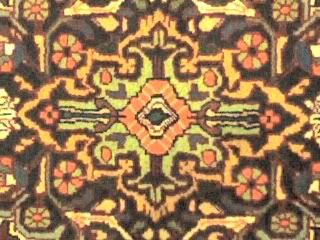Shaikh Salah, his servant, reported: "Shah Naqshband said one time to his followers, 'Any connection of your heart with other than Allah is the greatest veil for the seeker,' after which he recited this verse of poetry:
"The connection with other than God
Is the strongest veil,
And to be done with it,
Is the Opening of Attainment."
Immediately, after he recited this verse, it came to my heart that he was referring to the connection between belief (Iman) and Islam. He looked at me and laughed and said, 'Did you not hear what Hallaj said? "I rejected the religion of God, and rejection is obligatory on me even though that is hideous to Muslims." O Shaikh Salah, what came to your heart -- that the connection is with belief and islam -- is not the important point. What is important is Real Faith, and Real Faith for the People of the Truth is to make the heart deny anything and everything other than God. That is what made Hallaj say, "I denied your religion and denial is obligatory on me, although that is hideous to Muslims." His heart wanted nothing except Allah."
"Hallaj, of course, was not denying his faith in Islam, but was emphasizing the attachment of his heart to God Alone. If Hallaj was not accepting anything except Allah, how could one say that he was actually denying the religion of God? His testimony of the reality of his Witnessing encompassed and made as child's-play the ordinary witnessing of the common Muslim."
Shaikh Salah continued, saying, Shah Naqshband said, "The people of God do not admire what they are doing; they act only out of the love of God."
Shah Naqshband said,
"Rabi'a al-'Adawiyya said, 'O Allah I didn't worship seeking the reward of Your Paradise nor fearing your punishment, but I am worshipping You for Your Love alone.' If your worship is for saving yourself or for gaining some reward for yourself, it is a hidden shirk, because you have associated something with Allah, either the reward or the punishment. This is what Hallaj meant."
from www.naqshbandi.org/chain/17.htm
"The connection with other than God
Is the strongest veil,
And to be done with it,
Is the Opening of Attainment."
Immediately, after he recited this verse, it came to my heart that he was referring to the connection between belief (Iman) and Islam. He looked at me and laughed and said, 'Did you not hear what Hallaj said? "I rejected the religion of God, and rejection is obligatory on me even though that is hideous to Muslims." O Shaikh Salah, what came to your heart -- that the connection is with belief and islam -- is not the important point. What is important is Real Faith, and Real Faith for the People of the Truth is to make the heart deny anything and everything other than God. That is what made Hallaj say, "I denied your religion and denial is obligatory on me, although that is hideous to Muslims." His heart wanted nothing except Allah."
"Hallaj, of course, was not denying his faith in Islam, but was emphasizing the attachment of his heart to God Alone. If Hallaj was not accepting anything except Allah, how could one say that he was actually denying the religion of God? His testimony of the reality of his Witnessing encompassed and made as child's-play the ordinary witnessing of the common Muslim."
Shaikh Salah continued, saying, Shah Naqshband said, "The people of God do not admire what they are doing; they act only out of the love of God."
Shah Naqshband said,
"Rabi'a al-'Adawiyya said, 'O Allah I didn't worship seeking the reward of Your Paradise nor fearing your punishment, but I am worshipping You for Your Love alone.' If your worship is for saving yourself or for gaining some reward for yourself, it is a hidden shirk, because you have associated something with Allah, either the reward or the punishment. This is what Hallaj meant."
from www.naqshbandi.org/chain/17.htm






No comments:
Post a Comment